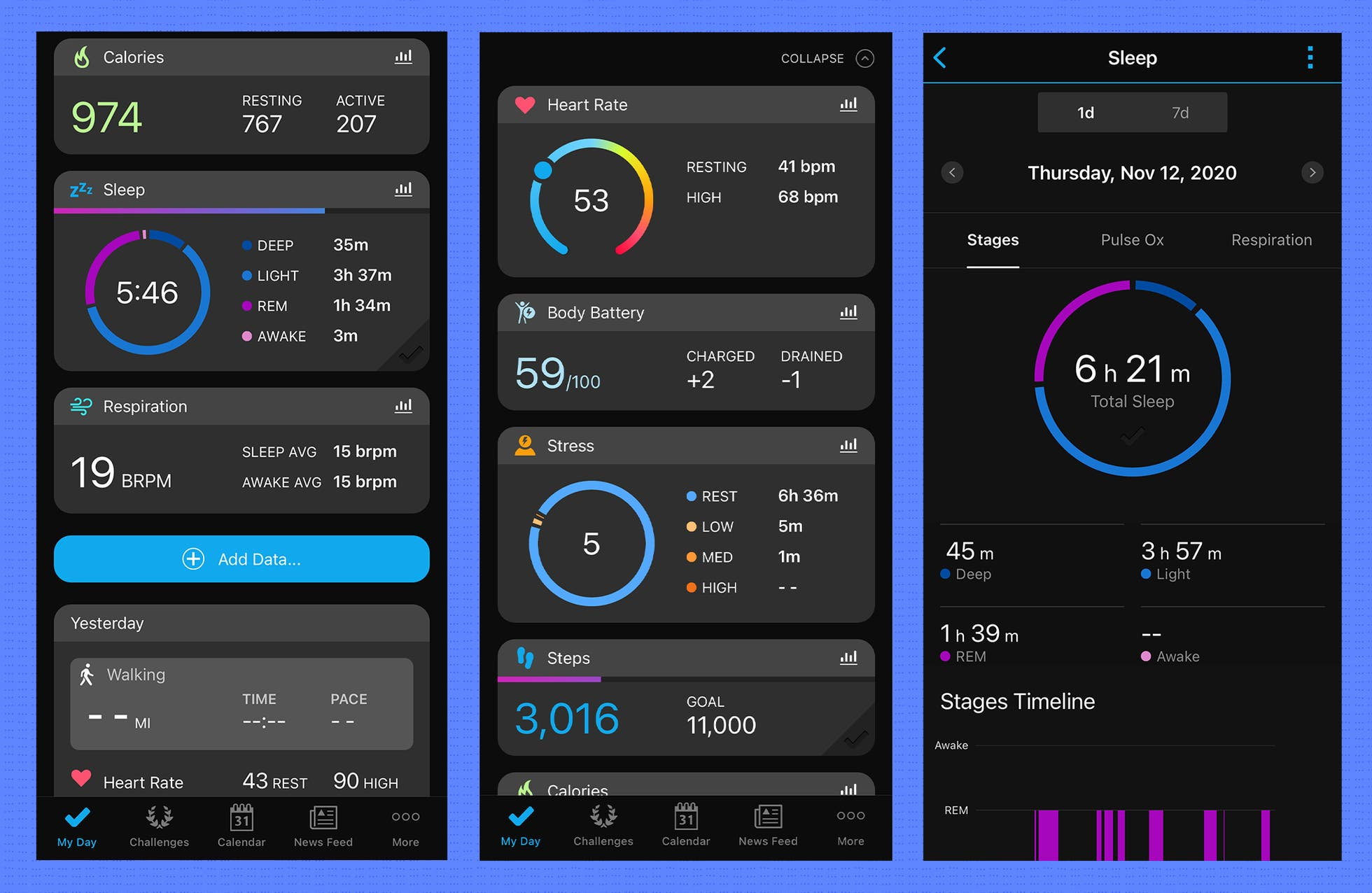Health Tracking has emerged as a critical component in understanding how learning and memory formation occur within the brain’s intricate network. Recent advancements in neuroscience insights are providing groundbreaking techniques that reveal the molecular foundations of these cognitive processes. Researchers are now able to delve deep into synaptic plasticity, the key mechanism that allows our brains to adapt and retain information, which is particularly relevant for developing dementia treatments. By leveraging innovative memory formation techniques, scientists can create better strategies to help individuals learn and remember essential information. This convergence of health tracking and neuroscience not only promises to enhance our understanding of memory but also holds the potential to transform therapeutic approaches for neurological disorders.
In the realm of cognitive research, monitoring health metrics has become increasingly vital for grasping the complexities of memory and learning. Alternative phrases like cognitive monitoring or brain activity tracking reflect the burgeoning interest in how our minds operate and form memories. By investigating the underlying biological mechanisms, researchers aim to unlock new methods for treating conditions such as dementia, particularly through improved synaptic resilience and adaptability. The intersection of cognitive science and health assessment tools provides a rich landscape for exploring innovative techniques that enhance our ability to learn and retain knowledge. As we continue to decipher the patterns of neural connectivity, we can expect significant advancements in effective memory care solutions.
Understanding Health Tracking in Memory Formation
Health tracking plays a crucial role in understanding how memory formation occurs at a molecular level. By monitoring the interactions and behaviors of synapses, researchers are now able to analyze changes in synaptic plasticity over time. This insight is significant as it allows for a deeper investigation into how various factors, such as experiences and environmental stimuli, affect our ability to learn and retain information. Advanced health tracking techniques, such as Extracellular Protein Surface Labeling in Neurons (EPSILON), empower scientists to visualize synaptic processes with unprecedented precision, facilitating the identification of specific molecular pathways involved in memory.
Moreover, health tracking can guide therapeutic strategies aimed at treating memory-related disorders, such as dementia. By understanding the basic neuroscience insights behind memory formation and retrieval, researchers can identify potential targets for intervention. For example, the identification of key proteins like AMPARs within synaptic connections could lead to developing treatments that enhance synaptic function, thereby improving memory performance. Ultimately, this integration of health tracking into neuroscience research not only enhances our understanding of memory mechanisms but also opens up avenues for innovative therapies that could combat cognitive decline.
Neuroscience Insights Into Synaptic Plasticity
Neuroscience insights into synaptic plasticity highlight the dynamic nature of the brain’s ability to adapt, learn, and memorize information. Synaptic plasticity refers to the strengthening or weakening of connections between neurons, significantly influenced by the activities and experiences of an individual. Research has shown that these plastic changes are crucial for forming lasting memories, as they dictate how efficiently information is processed and stored. By utilizing advanced methodologies like EPSILON, scientists can delve deeper into the intricate mechanisms behind synaptic changes and how they correlate with learning outcomes.
Furthermore, a thorough understanding of synaptic plasticity can inform approaches to enhance memory formation techniques. By identifying the processes that contribute to the optimization of synaptic strength, researchers can develop strategies and practices that maximize learning potential. For instance, integrating memory-enhancing techniques within educational frameworks or therapeutic settings can lead to improved memory retention and recall. These neuroscience insights into memory formation are essential in crafting effective interventions, particularly for those suffering from cognitive impairments associated with diseases like Alzheimer’s.
Advanced Memory Formation Techniques and Their Applications
The advancement of memory formation techniques, particularly those utilizing novel approaches like EPSILON, marks a significant leap in the field of neuroscience. These methods enable researchers to visualize and quantify synaptic behaviors at a level of detail that was previously unattainable. Such advancements allow for the exploration of memory formation in real-time, providing invaluable insights into how memories are encoded and retrieved. By understanding the mechanisms that underpin these processes, researchers are better equipped to tailor strategies that promote effective learning and memory retention.
These advanced techniques also hold promise for clinical applications, especially in addressing memory-related disorders. As researchers glean insights into the molecular processes that contribute to memory deficits, they can design targeted therapies that aim to restore or enhance synaptic plasticity. This perspective could revolutionize approaches to treat conditions like dementia, where existing treatments often fall short due to a lack of understanding about the underlying neurobiology of memory loss. By harnessing the power of cutting-edge neuroscience tools, the potential for developing effective, personalized treatments for those affected by cognitive decline is more realistic than ever.
Exploring Dementia Treatments Through Memory Research
The exploration of dementia treatments is increasingly linked to burgeoning memory research that elucidates the biological underpinnings of memory formation. As the global population ages, the prevalence of dementia necessitates innovative therapeutic strategies based on fundamental neuroscience discoveries. Recent findings about synaptic plasticity and the role of proteins like AMPARs in memory formation provide a new understanding of the molecular disruptions that occur in dementia. By investigating these pathways in-depth, researchers can identify potential targets for drug development and therapeutic interventions.
Additionally, understanding the synaptic mechanisms implicated in memory disorders could lead to preventive strategies aimed at maintaining cognitive health. For instance, therapies that enhance synaptic function or promote neurogenesis could be implemented before significant memory impairment occurs. This proactive approach could allow individuals at risk for developing dementia to implement lifestyle changes that benefit their cognitive health. As research advances, the ability to translate these memory studies into effective dementia treatments will play a crucial role in improving the quality of life for those affected by this debilitating disease.
The Role of Synaptic Connections in Learning
Synaptic connections are foundational to the processes of learning and memory, serving as the communication channels through which neurons relay information. It’s through these synaptic pathways that experiences are encoded into our memory. The strengthening or weakening of these connections, a phenomenon referred to as synaptic plasticity, directly influences how effectively we learn and recall information. The interplay between different types of synaptic connections illustrates the complexity of the brain’s memory systems and underscores the need for further exploration into how these processes can be optimized.
Understanding the nuances of synaptic connections not only elucidates the mechanisms behind learning but also offers insights into how we can enhance our ability to remember. Techniques such as spaced repetition and active recall have been proven to improve synaptic efficiency and retention. By applying insights from neuroscience research to enhance educational techniques, we can fundamentally improve learning outcomes. As such, the study of synaptic mechanisms is not merely an academic pursuit but a crucial component of designing more effective learning strategies applicable across various fields.
Memory Encoding: Mechanisms and Implications
Memory encoding is the process through which our brains convert sensory information into lasting memories. Recent studies have illuminated several mechanisms involved in this multifaceted process, emphasizing the importance of synaptic activity in the encoding phase. For instance, the dynamic behavior of synaptic proteins during the initial stages of memory formation showcases how our experiences literally shape our brains at a molecular level. Understanding these encoding mechanisms helps disentangle the complex relationship between personal experiences and memory retention, offering insights applicable in educational and therapeutic contexts.
Moreover, exploring memory encoding deeply informs our understanding of how certain stimuli or experiences can enhance or inhibit the retention of information. Neuroplasticity, which enables the brain to adapt and rewire itself, plays a critical role in this process. Insights into effective encoding strategies have the potential to transform learning methods, particularly in environments where memory retention is paramount. The implications of enhancing memory encoding techniques could extend from academic settings to therapeutic interventions for individuals struggling with memory loss, highlighting the profound significance of this area of research.
Impact of Synaptic Plasticity on Long-term Memory
The impact of synaptic plasticity on long-term memory formation is a core principle in neuroscience. As memories are formed, the process of strengthening synaptic connections through repeated use allows for the establishment of long-term memories. This fundamental aspect of brain function underscores the importance of understanding how external factors influence synaptic plasticity, such as learning environments and emotional states. The research concerning synaptic plasticity serves as a key to unlocking the secrets of memory retention and recall.
Additionally, the relationship between synaptic plasticity and long-term memory has implications for developing treatments for memory impairments. By modulating synaptic strength, researchers hope to find ways to bolster memory formation in individuals experiencing cognitive decline. As treatments become more targeted and nuanced, the focus on enhancing synaptic plasticity may lead to breakthroughs in therapies for conditions such as Alzheimer’s or other neurodegenerative disorders. Ultimately, a deeper understanding of this relationship could pave the way for innovative strategies to improve memory performance across the lifespan.
Advancements in Neuroscience for Health and Memory
Advancements in neuroscience have fueled efforts to understand health and memory through rigorous research and technological innovation. As researchers employ techniques like EPSILON to map synaptic connections and visualize memory pathways, the potential for significant advancements in health tracking becomes clear. This approach enables scientists to pinpoint how molecular changes in the brain correlate with health outcomes, particularly in relation to memory and learning. Such insights could guide the development of interventions designed to promote cognitive health across various populations.
In light of these advancements, the relevance of neuroscience in health cannot be overstated. As we continue to explore the intricate connections between memory formation techniques and overall brain health, opportunities to mitigate risks associated with cognitive decline increase. Through the synthesis of neuroscience insights and health tracking methodologies, the potential for transformative outcomes in medical treatments and preventative healthcare strategies grows exponentially, emphasizing the importance of ongoing research in this vital area.
Future Directions in Memory Research and Therapeutics
The future of memory research is poised for exciting developments as researchers explore new frontiers in understanding how to enhance memory retention and recall. With emerging technologies and methodologies, we can anticipate a more profound comprehension of the underlying neurobiological processes that facilitate memory. Future directions may include applying EPSILON and similar techniques in clinical settings, allowing researchers to monitor real-time changes in synaptic plasticity during memory tasks. This kind of real-time data could revolutionize therapeutic strategies, paving the way for tailored approaches to treat cognitive impairments.
Furthermore, integrating interdisciplinary insights from fields like psychology, education, and cognitive neuroscience is crucial for advancing memory research. As teams of scientists and educators collaborate to bridge the gap between theory and practical application, the potential for widely applicable memory-enhancing strategies increases. Looking ahead, the focus on developing adaptable memory formation techniques that respect individual learning styles and neurological profiles will be key in optimizing cognitive performance and health.
Frequently Asked Questions
What is health tracking and how does it relate to neuroscience insights?
Health tracking involves monitoring various health metrics, often leveraging neuroscience insights to understand how our brain functions influence our overall health. For instance, tracking cognitive functions can reveal changes in memory formation techniques and synaptic plasticity, which are essential for learning and retaining information.
How does synaptic plasticity impact health tracking related to memory formation?
Synaptic plasticity is critical to memory formation as it reflects the brain’s ability to strengthen or weaken connections between neurons. Health tracking can help assess cognitive changes and identify patterns that inform memory formation techniques, ultimately guiding therapeutic interventions for memory disorders.
What role do dementia treatments play in health tracking?
Dementia treatments are significantly influenced by health tracking because it allows clinicians to monitor cognitive decline and the effectiveness of interventions. By assessing synaptic plasticity through advanced health tracking techniques, researchers can develop more effective dementia treatments tailored to individual needs.
Why is understanding memory formation techniques important in health tracking?
Understanding memory formation techniques is essential in health tracking as it aids in identifying how well individuals retain and recall information. This knowledge can help in designing personalized health tracking systems that facilitate better cognitive function monitoring and support, especially in aging populations.
How can health tracking benefit from the latest research on synaptic behavior?
Recent research on synaptic behavior, particularly using techniques like EPSILON, has improved our ability to observe and track memory formation at a molecular level. This advancement can enhance health tracking by providing more detailed insights into cognitive health, guiding interventions that target synaptic mechanisms for improved memory and learning.
What insights do the latest neuroscience findings offer for health tracking applications?
The latest neuroscience findings offer valuable insights for health tracking applications by illuminating the intricate processes involved in memory formation and synaptic plasticity. These insights can pave the way for innovative health tracking tools that monitor cognitive health, contributing to better understanding and treatment of neurological disorders such as dementia.
| Key Point | Description |
|---|---|
| New Technique | The EPSILON technique maps how learning and memories are formed at molecular levels, allowing for insights into neurological disorders. |
| Research Team | Led by Adam Cohen, including students and scholars from Harvard and the Howard Hughes Medical Institute. |
| Synaptic Plasticity | Key to how the brain learns and forms memories; involves AMPAR proteins. |
| High-Resolution Observation | EPSILON uses fluorescent labeling to observe synaptic behavior with unprecedented precision. |
| Applications | Potential to advance understanding of memory-related diseases such as Alzheimer’s. |
| Future Implications | Cohen emphasizes the importance of basic research in improving human health and enhancing cognitive therapies. |
Summary
Health Tracking is crucial for understanding how our brains form memories and learn new information. The innovative EPSILON technique developed by Harvard researchers allows for an extraordinary mapping of the synaptic processes that underlie memory formation. By shedding light on how synaptic plasticity operates, this research opens the door to potential therapies for memory-related disorders like dementia, marking a significant advance in the field of neuroscience.



